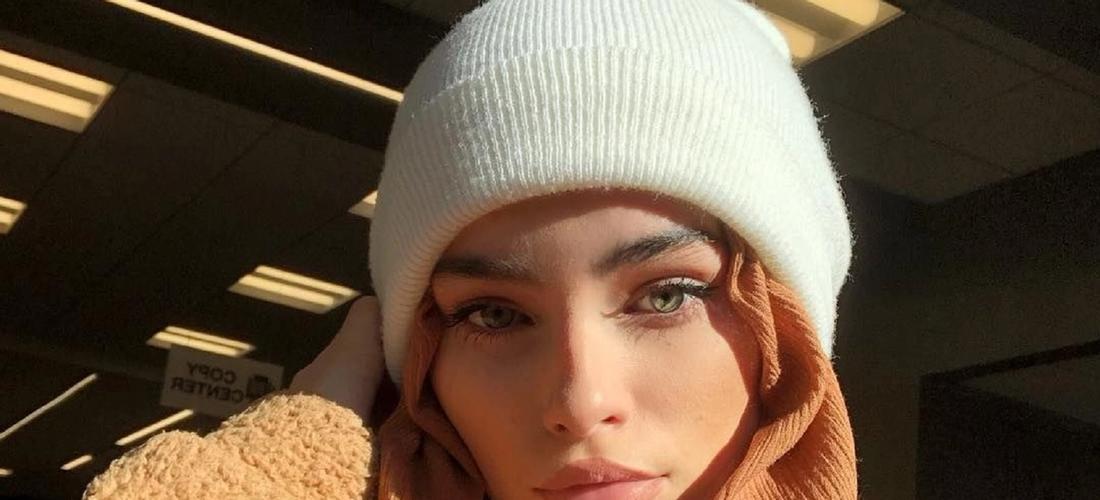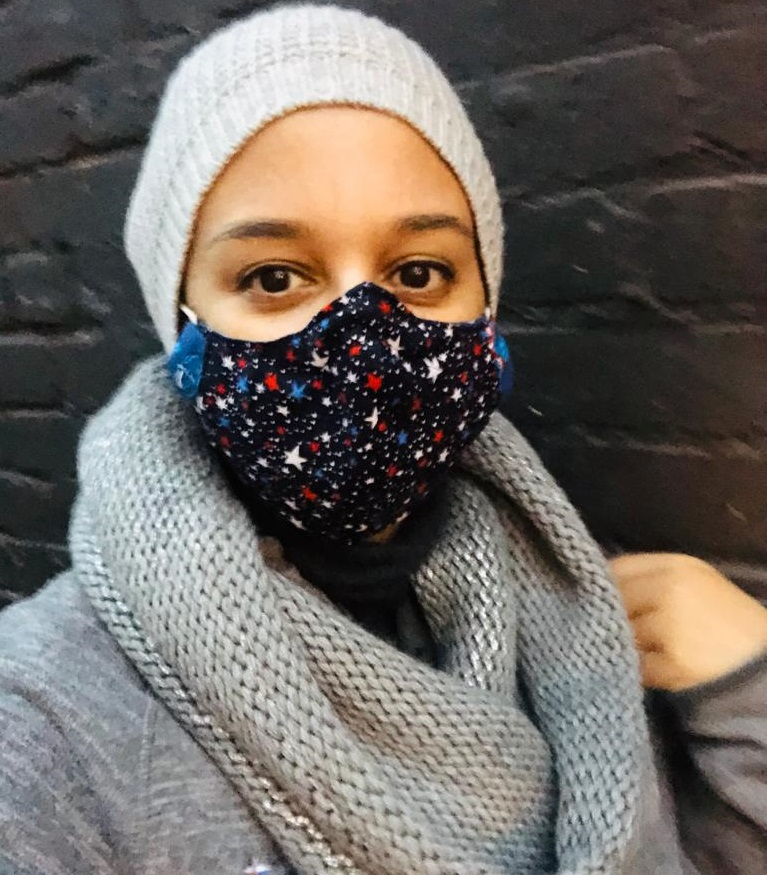Does Wearing a Beanie Instead of My Hijab Mean I'm Cheating? (Not Really)
Faith
|
Dec 14, 2020
|
4 MIN READ

Image source: Pinterest
Memories are a funny thing. I recently remarked to my husband that it’s such a blessing Allah (S) allows us to forget. He had asked me if I recalled something, and I did, but then I remembered a whole host of other memories that were very unpleasant and brought back to life a particularly difficult and heart-breaking time in our lives.
I do sometimes like to reflect on the past, remind myself of where we were to better appreciate where we are now. Or, to encourage myself that we will come through a current challenge like we did in some past situation. I also like to forget the past and look to the future, as it can be too painful a reminder of some things best left forgotten. I suspect many of us feel this way.
And then sometimes the past reminds us how some things never change.
A recent trip into my Facebook memories brought up a media appearance I made five years ago on Al Jazeera’s program, “The Stream,” to discuss “faith in times of fear,” the intentions, dangers and fears for hijab-wearing Muslim women in the aftermath of two violent attacks - one in Paris and one in San Bernardino, California. A BBC article right after the Paris attacks in 2015 detailed the story of one Muslim woman who decided to wear a beanie instead of her classic hijab wrap so that she wouldn’t be known as Muslim. In remembering my remarks on this program, I thought about how the same story could be revisited now. It's a story still being told.
Why do we, those of us who choose to, wear our hijab? What are our intentions behind it? Would we ever consider taking it off for fear of violence or for safety? What keeps us, day after day, wrapping our hijab? I’ve never been one to personally discuss this publicly (outside of that appearance on “The Stream”), wanting instead to focus on the stories and experiences of others in my work as a journalist and editor.
This month on the blog and on all of Haute Hijab’s social media platforms, we are exploring this idea around intention as we round out the old year and head into 2021 (with the hashtag #LikeYouMeanItHH). Why do you choose to wear it still? Have your intentions changed? What are your intentions? The why’s behind why we do what we do are so important. And, as most of us of course do change over the course of our lives, it behooves us to revisit our intentions and renew them.
What does it mean to “wear it like you mean it” as opposed to the routine so many of us get into wearing our hijab as part of a habit?
As the temperatures have cooled down where I live, I started wearing my daughter’s beanie, or knit cap, anytime I went for a walk around our neighborhood or to do a quick errand. I also wrap a hijab around my neck by way of covering up. It became a super easy and fast thing to do, giving me easy access to wearing a mask or popping in ear phones.

Me in my knit cap, neck scarf and mask a few weeks ago.
After a few weeks of doing this, I noticed something: nobody was really taking note of me. I don’t mean this in a narcissistic way, but rather I was used to being noticed in my community for being visibly Muslim. So much so that it was second nature; like, that was my “look.” And in my knit hat and neck scarf, that tacit recognition of my Muslim-ness was gone. The other day I ran into an old friend who was jogging in my neighborhood. She told me she didn’t recognize me in my hat without my hijab.
Later on I remarked to my husband and son, “I feel like I’m cheating. Like I’m modestly dressed and covered up, but my Muslim-ness is not known.” It took me right back to that 2015 BBC article, except I'm not scared and I have no desire to hide my Muslim identity.
In an old video, Haute Hijab CEO Melanie talks about a moment when she took off her hijab in the bathroom to fix her hair and was really feeling how nice her hair looked that day, and what if she were to go out without her hijab? Ultimately, she concluded, what would be so hard for her was that she would not be known for being Muslim. That visibility of it was very important to her. I get this.
Hijab isn't the only way to be known for being Muslim. (And, this is not meant to be a discussion on whether hijab is fard or not. You can find that here.) Hijab is not the end-all, be-all marker of one’s Muslim-ness. Our actions, intentions, faith practices, characters, obedience to Allah (S), compassion, kindness and so much more is intrinsic to living a faith-ful life. But for me, and I’m only speaking for me now, it’s quietly become part of my visibility, a visual reminder of who I am committing to worship, even when I do so poorly or half-heartedly.
Sometimes some of us wear a beanie and neck scarf or a beanie over our hijab. What matters is that for those of us who choose to wear hijab is that we are trying, we are setting our intentions. I’ll still wear my knit cap and neck scarf around my neighborhood walks. It’s super convenient, honestly. But I’ll probably go back to my classic hijab wrap when I’m out and about town. It feels right.
Check out the conversations this week on our social media platforms (#LikeYouMeanItHH) and here on the blog about hijab struggles and intentions.
Subscribe to be the first to know about new product releases, styling ideas and more.
What products are you interested in?

